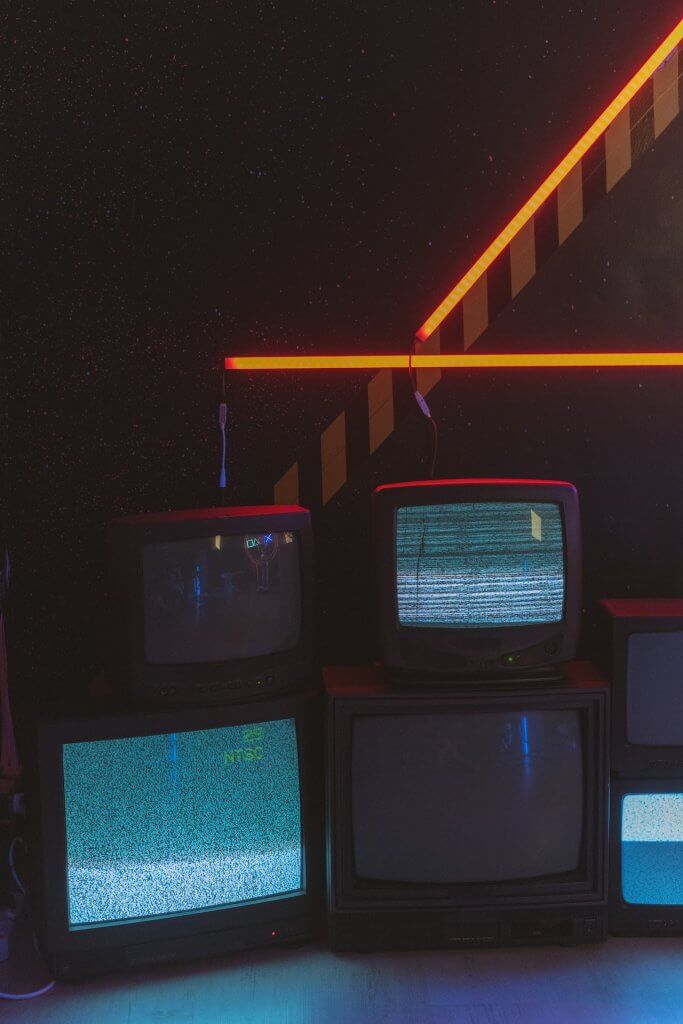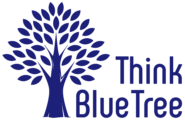Welcome to the era of bullshit, a time where we’re constantly bombarded with misleading information, half-truths, and often outright lies.
The moral philosopher, Harry Frankfurt, puts its simply in his book ‘On Bullshit’:
“One of the most salient features of our culture is that there is so much bullshit.”
He’s not wrong. But let’s be honest, bullshit isn’t just out there in the world; it’s something we all engage in, even within ourselves. Understanding the nature of bullshit—both external and internal—is crucial for our mental well-being and ultimately, our satisfaction in life.
The stories we tell ourselves and the information we consume can shape our emotions, actions, and our quality of life. Whether it’s the crap you stumble upon online or the comforting things you tell yourself (“I’ll start XYZ tomorrow”), being aware of bullshit can save you from unnecessary stress and help you make better decisions.
This guide will help you understand the anatomy of bullshit, how to be more self-aware, and how to live more authentically amidst the chaos. By the end, you’ll have a toolkit for cutting through the nonsense and building a life that aligns with your true self.

UNPACKING BULLSHIT: DECEPTION EVERYWHERE
Bullshit comes in two main varieties: EXTERNAL and INTERNAL. But before we delve into those, it’s crucial to distinguish bullshit from outright lies.
Lies vs Bullshit
A lie is a deliberate falsehood, spoken or acted upon with the intention of deceiving someone. Liars know the truth and choose to deviate from it for a particular reason. In contrast, bullshit involves statements or actions that may or may not be false but are crafted with an indifferent attitude toward the truth. Bullshitters aim to achieve a specific effect or serve an agenda, without regard for whether what they’re saying is true or not.
Let’s consider two scenarios to illustrate the difference between lies and bullshit.
Scenario 1: Lie
Imagine you’re late for work. When asked why you’re late, you claim that there was an accident causing a delay. In reality, you overslept and rushed to work. Here, you’re lying because you know the truth—that there was no accident—and are deliberately providing false information to avoid repercussions.
Scenario 2: Bullshit
You’ve been seeing someone casually but are hesitant to take the relationship to the next level. When a friend asks why you haven’t committed yet, you respond, “I’m just really focused on my career right now.” In this instance, you’re not necessarily lying, as your career might indeed be important to you. However, your primary aim is not to convey this truth but to justify your hesitance to commit without confronting or acknowledging your deeper emotional reservations. You’re not concerned with the actuality of your feelings or fears regarding the relationship; you’re more invested in maintaining a narrative that makes your actions seem reasonable.
In the first scenario, you are consciously deviating from the known truth to avoid a negative outcome, constituting a lie. In the second scenario, you are indifferent to the truth or falsity of your statement; you’re more interested in maintaining a self narrative that avoids the difficulty of confronting the real reasons, thereby exemplifying bullshit.
The Paradox of Self-Deception
In the realm of self-deception, it’s important to understand that we can’t truly lie to ourselves; we can only bullshit ourselves. When you lie, there’s a clear acknowledgment of what the truth is—you consciously decide to deviate from it. However, when it comes to self-deception, you’re both the deceiver and the deceived, making a straightforward lie to oneself paradoxical and impossible.
Bullshitting yourself involves a more nuanced manipulation where the focus isn’t on the truth or falsity of the matter. You create narratives or excuses that serve a particular emotional need or agenda, like justifying staying in a job you hate or ignoring red flags in a relationship.
In this sense, you’re not consciously confronting a known truth and lying about it; instead, you’re obscuring, bending, or ignoring the truth, thereby bullshitting yourself into a state of comfortable ignorance or false security.
To give a good example, consider the following:
Imagine you’re in a job that’s causing you constant stress, eroding your work-life balance, and making you unhappy. You start to feel the urge to look for a new job but then immediately start thinking, “Well, it’s not that bad. It pays well, and I’m good at what I do. I should be grateful; not everyone has a job.”
Here, you’re not lying to yourself because lying requires a deliberate deviation from a known truth, and remember, you are both the deceiver and the deceived when it comes to self-deception. Instead, you’re bullshitting yourself by obscuring the truth—your unhappiness and stress—in favor of a narrative that serves an emotional need or agenda, such as comfort, avoidance of change, or fear of the unknown.
You’re not confronting the known truth of your unhappiness; rather, you’re opting for a narrative that lets you stay in a state of comfortable ignorance or false security.
In this scenario, you’re manipulating your own perceptions and feelings without explicitly acknowledging the truth, thereby bullshitting yourself rather than lying to yourself.
External Bullshit
This is the deception you encounter in the world around you. It can be politicians who make grandiose promises, media outlets that sensationalize stories, or advertisements that exaggerate product benefits. External bullshit is like a pollutant in the air we breathe; it’s pervasive and often hard to avoid.
Internal Bullshit
This form of bullshit is more intimate and personal. It’s the lies we tell ourselves, like convincing ourselves we’re happy in an unfulfilling job or ignoring relationship red flags. It serves as a coping mechanism, offering temporary relief but ultimately hindering personal growth and happiness.
By understanding these different facets of deception—lies, external bullshit, and internal bullshit—you equip yourself to confront and challenge them. This awareness is the first step in navigating the maze of misinformation that surrounds us and finding a path to a more authentic life.

QUESTIONING THINGS: A SOCRATIC APPROACH
If you’ve ever found yourself nodding along to a story or opinion without really questioning its basis, you’re not alone. In a world filled with noise, it’s often easier to accept things at face value rather than dig deeper. But as Socrates famously said,
“An unexamined life is not worth living.”
This ancient wisdom holds a timely lesson for us today, especially when it comes to tackling the issue of bullshit.
The Socratic method of questioning encourages us to challenge assumptions, whether they’re societal norms, news reports, or even our own beliefs. It’s about asking, “Why do I think this is true?” and “What evidence supports this claim?” or “Is this aligned with my core values?”
Applying this method allows you to cut through external forms of bullshit like misleading headlines or deceptive social media posts.
The Socratic method is also equally effective for addressing internal bullshit—the stories or excuses we tell ourselves. Maybe you’ve convinced yourself that you can’t achieve a particular goal. Question that assumption. What’s the evidence? Could it be an internal narrative rather than an objective truth? By questioning your own thoughts and beliefs, you create space for growth and self-improvement.
As human beings, we have the unique ability to observe our own thoughts and to think about them. This self awareness allows us to make fundamental changes to ourselves and limit self bullshit.
In essence, adopting a Socratic approach turns you into a vigilant gatekeeper of your mental landscape. It enables you to sift through the overwhelming information and choices you encounter daily, helping you to live a more authentic life in a world saturated with bullshit.

PRACTICAL STEPS FOR A BULLSHIT-FREE LIFE
We’ve identified the different types of deception and the value of questioning everything. This ability to observe ourselves is key to being able to master sifting through the noise of the external and internal bullshit.
Here a few way skills that will help:
Mindfulness- The Pause Button
Mindfulness isn’t just a buzzword; it’s a powerful tool for discerning truth from falsehood. It’s also not meditation- that is completely different. It’s also not a relaxation technique. So forget the mindfulness hype out there in all its different forms, the simple key is to develop a pause before you respond to something. Taking a moment to pause and reflect before reacting to information or making a decision is often all you need to see through the fog. Ask yourself, “Is this information serving me, or is it feeding into a narrative that keeps me from growing?”
Value-based Living:
Knowing what you truly value can serve as a natural filter for bullshit. If you value honesty, for example, you’ll be less inclined to accept deceptive narratives, whether they come from an external source or your own mind. Keeping your core values at the forefront of your decision-making process acts as an internal compass, steering you towards a more authentic life. We often don’t reflect on our values, so the first step is to do that- this is where things like mental health coaching can help to work through it in a deep and deliberate way.
Cultivate Critical Thinking:
In a world full of clickbait headlines and sensational stories, critical thinking is your best defense. Approach information with a healthy dose of skepticism. Look for evidence, question the source, and weigh it against your own understanding and values.
Emotional Awareness:
Sometimes bullshit appeals to our emotions rather than our logical mind. Being aware of how information or situations make you feel can be a clue to underlying bullshit. Do you feel anxious, elated, or defensive? Understanding these emotional cues can guide you to probe deeper.
Relevance Realization
There is a whole post dedicated to relevance realization, but put simply- relevance realization is being able to flexibly spot what’s important. It’s knowing what gives a situation or event meaning, and how we navigate relationships successfully. It’s how we scan our environment to find what is important to us, and what is important in the world around us. Relevance Realization is a fundamental cognitive function we all have, but due to the meaning crisis, it’s a skill that has fallen by the wayside for many of us.
By integrating these tools into your daily life, you empower yourself to navigate the complexities of our deceptive world. They act as your personal bullshit detectors, enabling you to live more honestly with yourself and others. It’s certainly not a complete or comprehensive list, but it’s one that gets you started in a bullshit free life.

THE ULTIMATE PAYOFF: A LIFE LESS BULLSHITTED
Once you’ve equipped yourself with the knowledge to recognize various forms of internal and external deception, and the practical tools to navigate through them, the question is why do all this? What is the ultimate payoff for all this vigilance and introspection? Introspection is, after all, uncomfortable for many people and a difficult thing to do.
A Life of Authenticity
No more conforming to society’s ever-changing norms just because “that’s what everyone else is doing.” By questioning and challenging the status quo, both externally and internally, you pave your way to a life that’s more aligned with who you truly are.
Stronger Relationships
Honesty and authenticity foster deeper connections. When you stop accepting and spreading bullshit, whether it’s insincere social niceties or internal justifications for staying in a relationship that doesn’t serve you, you make room for more meaningful interactions.
Informed Choices
The tools you’ve learned empower you to make decisions based on fact rather than fiction, emotion rather than impulse. This leads to choices that are more aligned with your core values, making for a life that feels both purposeful and fulfilling.
Mental Clarity- Less Inner Conflict
Less bullshit means less mental clutter. When you’re not bogged down by societal expectations, false narratives, or self-deception, your mind is free to focus on what truly matters: your well-being, your goals, and your happiness.
In a world awash with deception and good old-fashioned bullshit, opting for a life of authenticity is perhaps the most radical act you can undertake. The road to a bullshit-free life is challenging but infinitely rewarding, offering you the mental clarity, inner peace and emotional freedom that come from living authentically.





